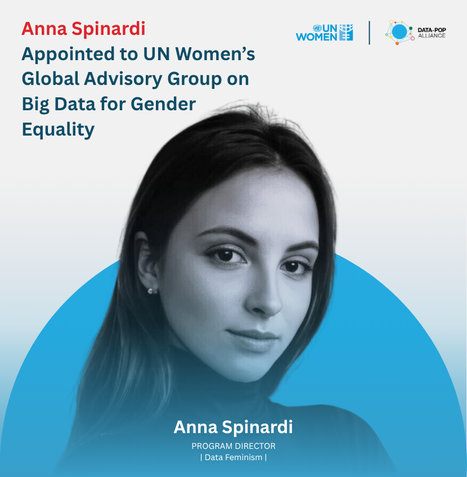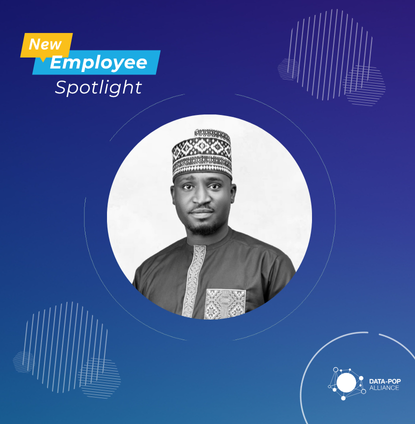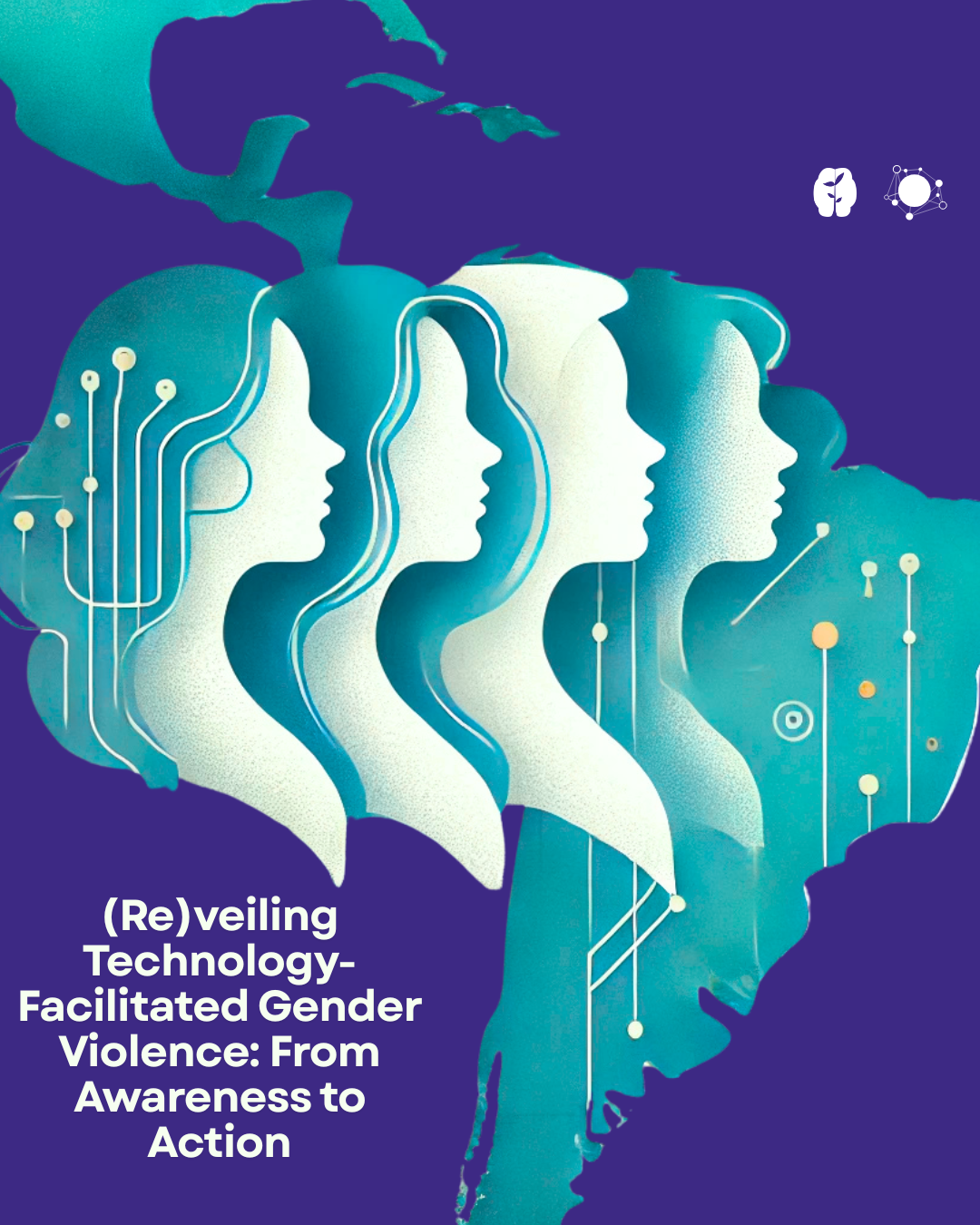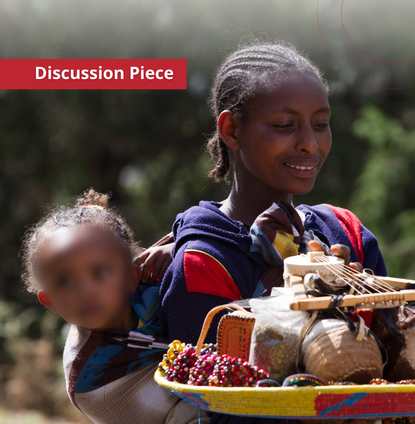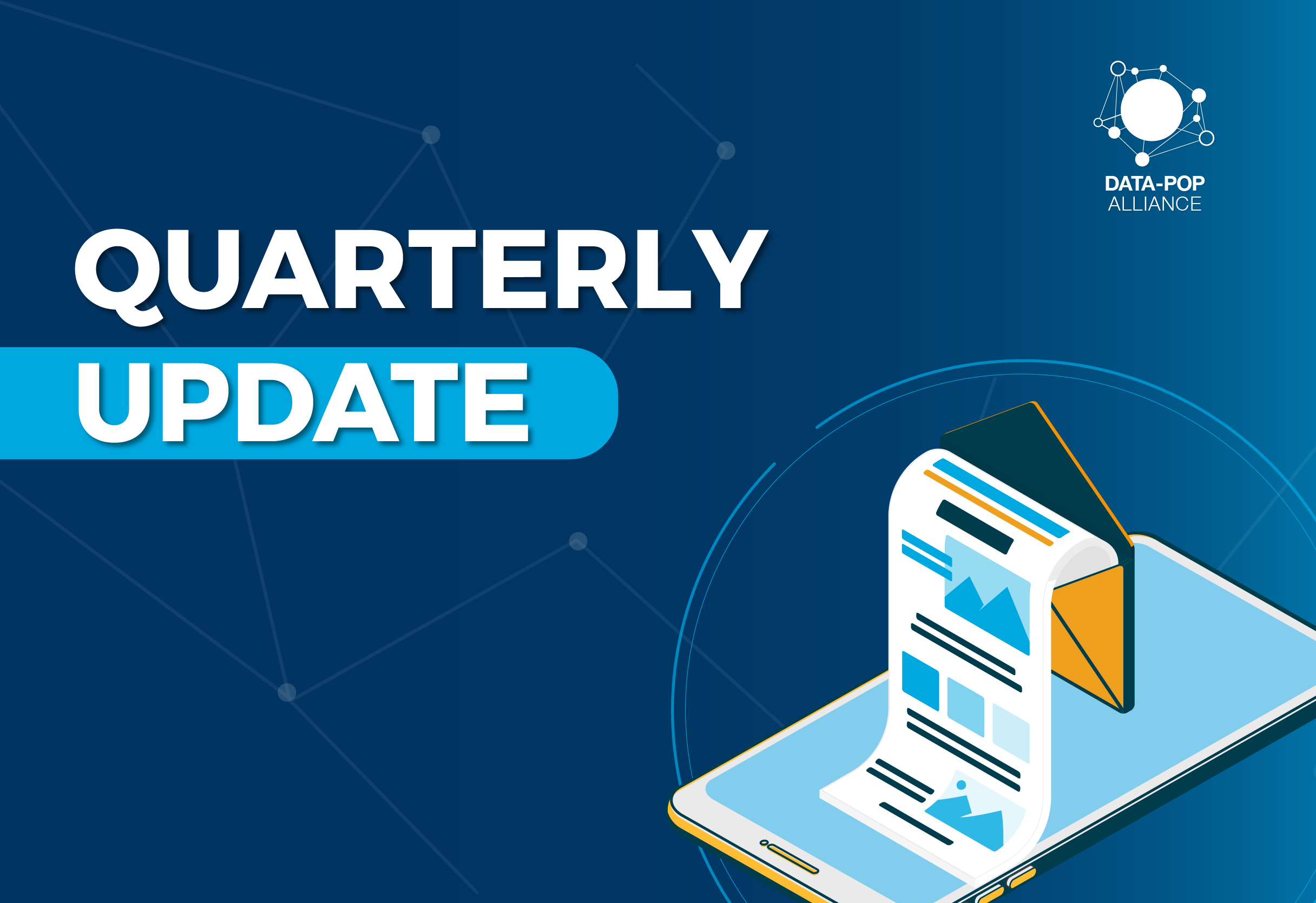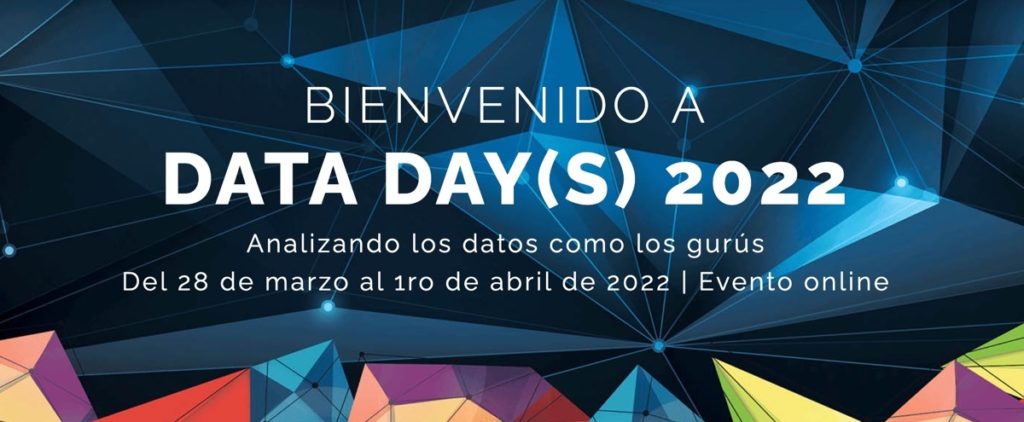
Data Day(s) es un evento organizado por Software Guru que se ha realizado exitosamente de forma presencial desde 2015 hasta 2019, y de forma virtual desde el 2020. El evento reúne a todo tipo de participantes involucrados en el análisis, gestión y procesamiento de datos: analistas de datos, científicos de datos, y data managers. Los temas que se abordan están enfocados en diferentes áreas como estrategia y liderazgo de organizaciones enfocadas en ciencia de datos, hard core machine intelligence, ingeniería de datos y datos para política pública.
Esta nueva edición del 2022 que se llevará a cabo el 28 de marzo al 1ro de abril, y Data-Pop Alliance tiene el honor de participar en cuatro conferencias en los que nuestros científicos/as y analistas de datos Alina Sotolongo, Agustina Pérez Mirianco, Enrique Bonilla, Yasmine Hamdar y Zinnia del Villar presentarán diferentes tópicos relacionados a la temática central.
A continuación encontrarán las conferencias que realizan los miembros de nuestro equipo y el enlace para registrarse.
¡No se pierdan la oportunidad de unirse a este evento!
(English version below)
Martes 29 de Marzo, 11:00 am (CST)
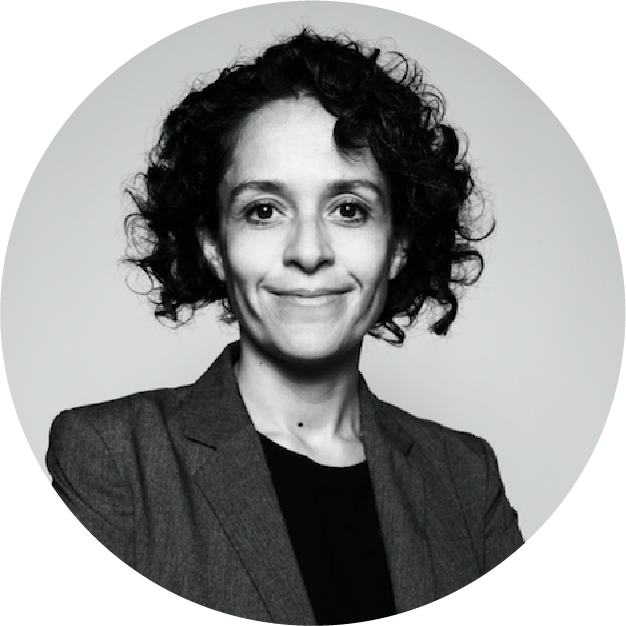
Zinnya del Villar
Consideraciones de género y feministas en la inteligencia artificial desde la perspectiva de los países en desarrollo
El uso de sistemas basados en la inteligencia artificial cuestiona la naturaleza sensible del monitoreo y del uso de los datos en las diferentes actividades y sectores de aplicación, así como de las aplicaciones de dichos sistemas. Como se ha demostrado en diversas países con mayor madurez de IA, la tecnología no es neutra, y la IA en particular está intrínsecamente sesgada y magnifica la discriminación de género generalizada que existe en los ecosistemas donde se despliega. Esto plantea cuestiones sobre la manera en que la IA puede exacerbar o aliviar la dinámica actual de dichos ecosistemas. Esta charla analiza la relación entre las mujeres, la tecnología y el contexto de los países en desarrollo utilizando a Latinoamérica como ejemplo.
Martes 29 de Marzo, 1:40 pm (CST)

Agustina Perez

Alina Sotolongo
Análisis de género en Liberia a través de la encuesta Demographic and Health Survey (DHS)
Como parte de esfuerzos crecientes para eliminar todas las formas de discriminación basadas en género, así como la desigualdad, marginalización y falta de oportunidades para mujeres en Liberia, UN Women, el African Development Bank, la Unión Europea, el Gobierno de Suecia, y el Gobierno de Liberia, a través del Ministerio de Género, en colaboración con Data-Pop Alliance desarrollaron el “Country Gender Equality Profile”. Su principal objetivo es proporcionar una guía hacia una mayor equidad de género y empoderamiento de la mujer en Liberia. Este estudio se llevó a cabo utilizando tanto investigación cuantitativa como cualitativa. En esta charla nos enfocaremos en la investigación cuantitativa y en particular en la metodología utilizada para analizar la encuesta Demographic and Health Survey (DHS), la cual, por su extensión geográfica, granularidad y temas abordados fue la principal fuente de datos utilizada. Se propondrá un análisis, que además de ser de utilidad en proyectos de investigación basados en género, puede utilizarse como base para otros países donde DHS es la principal fuente de datos, dado su alcance y la escasez de datos locales. Además, se discutirán las limitaciones encontradas y veremos algunas de las principales conclusiones obtenidas.
Martes 29 de Marzo, 5:40 pm (CST)

Enrique Bonilla

Alina Sotolongo
El panorama de datos y tendencias mundiales en libertad de expresión y desarrollo mediático
La libertad de expresión y el desarrollo de los medios son derechos fundamentales de la humanidad, y los datos nos ofrecen una oportunidad de mirar sus barreras y observar su progreso bajo un nuevo lente. Mediante una colaboración entre UNESCO y Data-Pop Alliance, se obtuvieron resultados importantes para el reporte “World Trends in Freedom of Expression and Media Development 2021-2022”, el cual fue publicado en marzo de este año. Para este propósito, se mapearon más de 150 fuentes de información (datos tradicionales y no tradicionales) y se analizaron más de 30 de ellas para encontrar las tendencias políticas, tecnológicas y sociales con respecto a la libertad de expresión durante los últimos cinco años (2016-2020). En esta plática se presentarán los análisis y hallazgos más significativos, las barreras que se enfrentaron para desarrollar el reporte, los retos actuales y posibles conflictos futuros respecto a la libertad de expresión.
Miércoles 1 de Abril, 1:40 pm (CST)
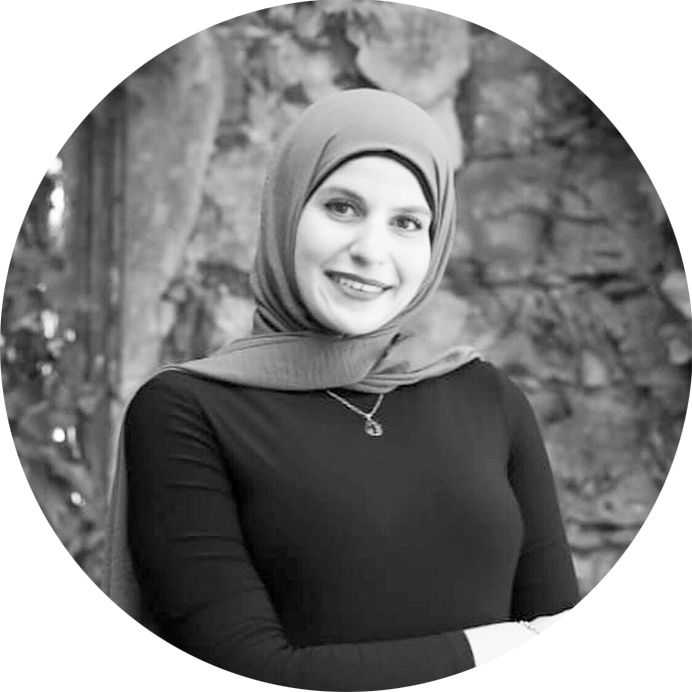
Yasmine Hamdar
Unleashing the Power of Non-traditional Data through NLP
A medida que la cantidad de datos en el mundo ha crecido considerablemente, hemos tenido que inventar una nueva terminología ajena para describir los datos como: terabytes, petabytes, exabytes y zettabytes. Los datos disponibles públicamente son un tesoro de información que puede utilizarse para la investigación de políticas públicas, el análisis de la percepción pública, la gobernanza y mucho más. Sin embargo, debido a su volumen, inspeccionar y comprender manualmente este tipo de datos se ha vuelto casi imposible. Aquí es donde entra en juego el PLN. El Procesamiento del Lenguaje Natural (PLN) ha demostrado ser extremadamente eficaz a la hora de identificar el lenguaje humano, comprender el lenguaje natural y producir textos que la gente pueda leer y entender. Debido a su capacidad, el PLN se utiliza para llenar el vacío en varios estudios estratégicos. En esta charla, exploraremos cómo extraer datos no tradicionales, cómo limpiar y pre procesar estos datos, y cómo extraer y generar ideas, junto con la visualización de datos, utilizando python.
Data Day(s) is an event organized by Software Guru was successfully held in person from 2015 to 2019 and virtually from 2020 onward. The event brings together participants involved in data analysis, management, and processing: such as data analysts, data scientists, data managers, etc. It is aimed at people involved in data processing and analysis in business fields. The topics to be addressed are focused on different areas, such as strategy and leadership of data science organizations, machine intelligence, data engineering, and data for public policy.
The 2022 event will take place from March 28th to April 1st, and Data-Pop Alliance is honored to participate in four conferences, in which our data scientists, Enrique Bonilla, Alina Sotolongo, Agustina Pérez Mirianco, Yasmine Hamdar and Zinnia del Villar, will give talks on different topics related to data science.
Below are the details of the lectures that will be given by our team members and the link to register.
Don’t miss the opportunity to participate in this event!
Tuesday, March 29th, 11:00 am (CST)

Zinnya del Villar
Gender and Feminist Considerations in Artificial Intelligence from the Perspective of the Global South Countries
The use of AI-based systems challenges the sensitive nature of the monitoring and use of data in different activities and application sectors, as well as the applications of such systems. As has been demonstrated in a number of countries with greater AI maturity, technology is not neutral, and AI in particular is inherently biased and magnifies the widespread gender discrimination that exists in the contexts in which it is deployed. This raises questions about how AI can exacerbate or alleviate the current dynamics at work within societies. This talk discusses the relationship between women and technology in the context of developing countries, withLatin America presented as an example.
Tuesday, March 29th, 1:40 pm (CST)

Agustina Perez

Alina Sotolongo
Gender Analysis in Liberia Using the Demographic and Health Survey (DHS)
As part of increasing efforts to eliminate all forms of gender-based discrimination, as well as inequality, marginalization and lack of opportunities for women in Liberia, UN Women, the African Development Bank, the European Union, the Government of Sweden, and the Government of Liberia, through the Ministry of Gender, in collaboration with Data-Pop Alliance developed the “Country Gender Equality Profile“. Its main objective was to provide a roadmap towards greater gender equality and women’s empowerment in Liberia. This study was conducted using both quantitative and qualitative research. In this talk we will focus on quantitative research and in particular on the methodology used to analyze the Demographic and Health Survey (DHS), which, due to its geographic spread, granularity and issues addressed, was the main source of data used. We will propose an analysis that, in addition to being useful in gender-based research projects, can be used as a basis for other countries where the DHS is the main source of data, given its scope and the scarcity of local data. In addition, the limitations encountered will be discussed and we will see some of the main conclusions obtained.
Tuesday, March 29th, 5:40 pm (CST)

Enrique Bonilla

Alina Sotolongo
The Global Data Landscape and Trends in Freedom of Expression and Media Development
Freedom of expression and media development are fundamental rights of humankind, and data offers us an opportunity to observe barriers hindering these goals and measure their progress through a new lens. Through a collaboration between UNESCO and Data-Pop Alliance, important findings were obtained for the report “World Trends in Freedom of Expression and Media Development 2021-2022“, which was published in March 2022. To do so, more than 150 sources of information (traditional and non-traditional data) were mapped and more than 30 were analyzed to find political, technological and social trends related to freedom of expression during the five year period between 2016-2020. This talk will present the most significant analyses and findings, the barriers faced in developing the report, as well as the current challenges and possible future conflicts regarding freedom of expression.
Wednesday, April 1st, 1:40 pm (CST)

Yasmine Hamdar
Unleashing the Power of Non-traditional Data through NLP
As the amount of data in the world has grown tremendously, we’ve had to invent new terminology to describe data, using words such as – terabytes, petabytes, exabytes, and zettabytes. Publicly available data is a treasure trove of information that can be leveraged for public policy research, public perception analysis, governance, and much more. However, because of its volume, manually inspecting and comprehending this type of data has become nearly impossible. This is where NLP comes into play. Natural Language Processing (NLP) has been shown to be extremely effective at identifying human speech, comprehending natural language, and producing text that people can read and understand. Because of its ability, NLP is used to fill the gap in various strategic studies. In this talk, we will be exploring how to scrape non-traditional data, how to clean and preprocess this data, and how to extract and generate insights, coupled with data visualization, using Python software.



